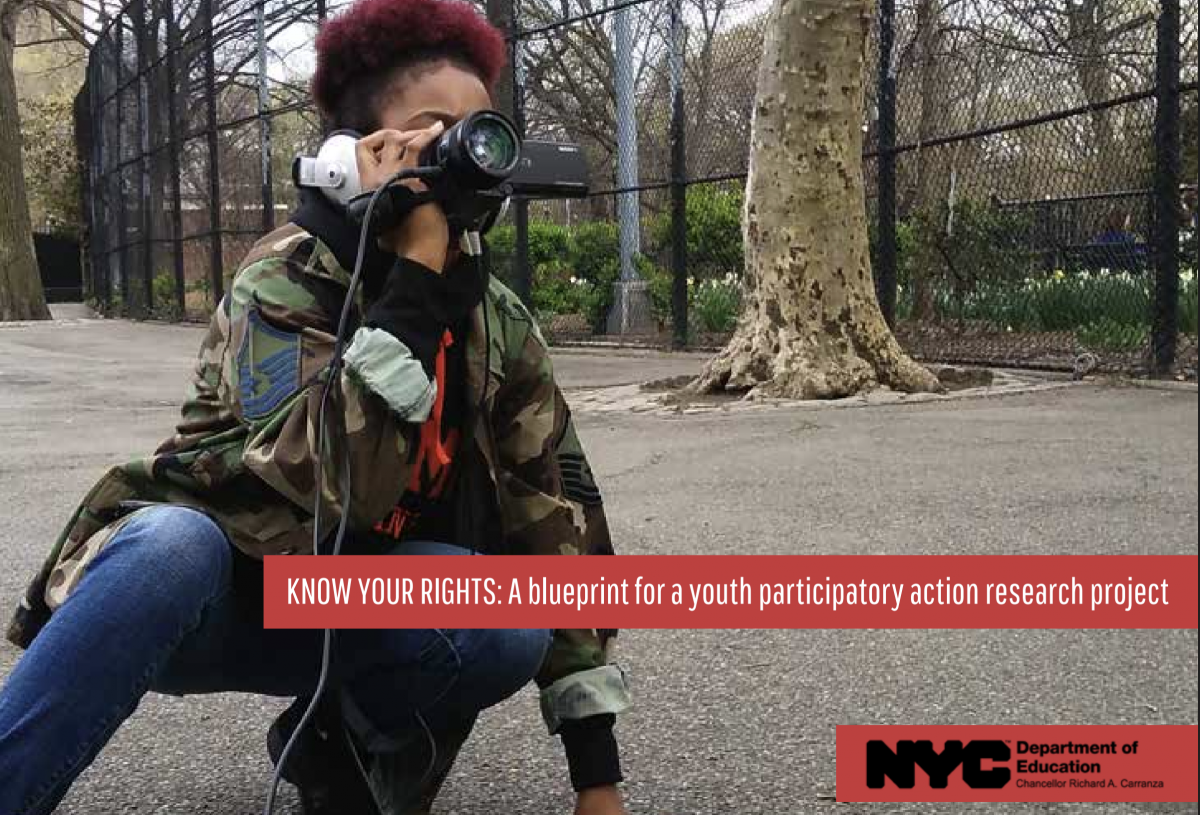“Education either functions as an instrument which is used to facilitate integration of the younger generation into the logic of the present system and bring about conformity or it becomes the practice of freedom, the means by which men and women deal critically and creatively with reality and discover how to participate in the transformation of their world.”
–Paulo Friere, Pedagogy of the Oppressed
Educators in American schools, and we consultants who support them, are overwhelmingly white. As a result, the voices of BIPOC young people are often not heard. We have to ensure that, at all times and especially now, we hear and amplify those voices. This week, we’re sharing a resource you can use to create space for students to express their concerns and center their experiences, and for all of us to listen.
The Know Your Rights documentary film-making project centers young people as authorities, action researchers, and truth-tellers in their own communities.

The Know Your Rights project was imagined and led by the NYCDOE’s Multiple Pathways to Graduation team, in partnership with the Educational Video Center and teachers at two NYC Transfer High Schools: Innovation Diploma Plus High School, and the High School for Excellence and Innovation. Students at both schools engaged in collaborating with each other to create original documentaries on a single topic that greatly impacts their communities. They chose to research and document NYC’s approach to policing in communities of color.
Know Your Rights is an open-source project with accompanying resource hub, designed to support young people and educators in a few ways:
- The Resource Hub is housed on a simple, replicable, Google site that includes resources, tip sheets, lessons, resources on policing, and a journal and playbook for students. You can head there and find everything you need to begin planning a video documentary project.If you are a teacher and would like a version of the Know Your Rights google site to adapt to your own needs, please email vicky@reDesignu.org. We will send you your own copy, with editing rights.
- If policing is a topic that the young people in your community wish to document–adding their unique perspective and voice to the critical, quickly growing, public record–the project is designed as a model that you can explore and then jump right in to begin. Though the interview subjects, research articles and other resources are a mix of general and NYC-specific resources, those who live outside of NYC can make the project more relevant by substituting community-connected resources. Please note: it is vital that you discuss with students how to undertake this work in a way that is both authentic and safe. Given our current political turmoil coupled with the COVID-19 pandemic, we recommend exploring ways that students can undertake this project in the virtual space.
- If the young people in your community are passionate about documenting a different issue, you can use your copy of the Resource Hub to remove references to policing, and begin by identifying the issue that is uppermost in the minds of young people (Stage 1 of the guide has three lessons to support the identification and selection of topics). Then, identify primary and secondary resources: people to interview, alongside historical and current trends in the issue, both locally and nationally, or globally.
Want to get started planning a remote-learning version of documentary video-making to launch this fall? Join us for two free design workshops:
Getting Comfortable with the Know Your Rights Blueprint and Resource Hub
Wednesday July 8th, 3-4pm. Click here for free registration >>
Adapting a Documentary Film-making Project to the Remote Learning Context
Wednesday July 15th, 3-4:30pm Cick here for free registration >>

